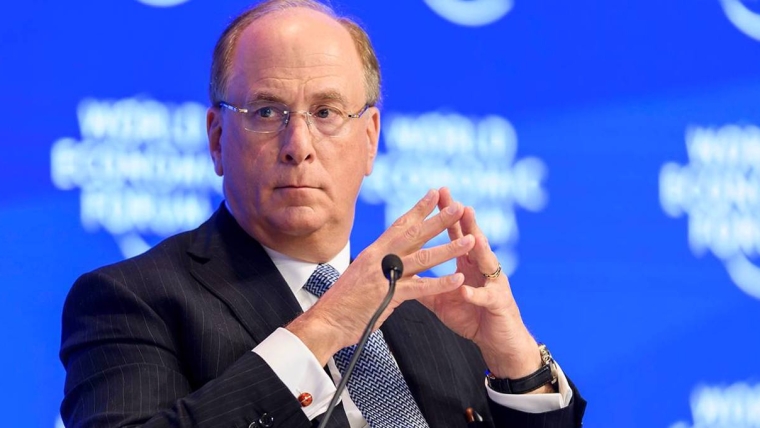
BlackRock Chairman and CEO Larry Fink’s latest annual letter has taken the business world by storm. BlackRock is the world’s largest asset manager, and Fink, addressing the CEOs of the companies whose assets his firm manages on behalf of investors, took the opportunity to advocate a more ecologically sustainable, socially conscious, forward-looking form of capitalism rooted in stakeholder rather than shareholder value.
Fink’s exhortation seems like a welcome break from orthodox dogma. But if his vision is supposed to be “woke,” it is not nearly woke enough. We’ve heard all this before, including in Fink’s own 2018 and 2019 letters, and in the ballyhooed 2019 Business Roundtable statement that Fink helped spearhead. But far too little has changed, largely because the vision expressed by Fink and other corporate leaders stops short of the radical reforms needed to transform capitalism in the interests of people and the planet.
Fink’s version of stakeholder capitalism is based on conceptual sleight of hand. After all, his support for stakeholders is conditional on a secure profit pipeline for shareholders, which means that shareholder value remains the bottom line. Stakeholder value becomes merely a means to an end – to benefit shareholders in the long run. It is thus a betrayal of stakeholder capitalism’s true intent: to create value for public benefit.
Consider climate change. Fink celebrates progress in dollar terms, stating that sustainable investments have reached $4 trillion. Yet the aim should not just be to invest trillions more in sustainable development; rather, those trillions should be coordinated democratically, by stakeholders, to support ambitious missions like global decarbonisation. A carbon-neutral economy is what would maximise the benefits for all stakeholders.
For missions to motivate action, generate momentum, and inject purpose into the economy, the gap between stakeholders and shareholders must be closed. In practice, that means empowering stakeholders. Workers, citizens, trade unions, community groups, state institutions, and NGOs must have strong financial and political stakes in the capitalist economy’s operations.
Such a paradigm shift begins with recognising the inherently collective process by which value is created in the first place. Value is co-created by producers and consumers, workers and managers, inventors and administrators, and regulators and investors. It does not simply spring from the heads of heroic entrepreneurs, risk-taking venture capitalists, and corporate leaders. It is the result of organizational and institutional configurations that enable all these actors to work together.
Whether in technology, pharmaceuticals, or energy, the big innovations that have produced value for corporate shareholders are more often than not the result of public investment. Most of the innovations driving today’s pharmaceutical revolution were financed by high-risk, early-stage investments from organisations like the US National Institutes of Health, which invests more than $40 billion per year across the United States.
Similarly, without public investments, the information-technology revolution would not have happened when it did. As I argued in The Entrepreneurial State, from the internet and GPS to touch screens and the technology underpinning Siri, everything that makes our phones “smart” resulted from strategic public investments.
No one doubts that private-sector innovation was also important, especially in the downstream phase of commercialisation. The question is why the private sector has received all the recognition and reward. Why do drug prices not reflect the original public contribution (even when the government reserves “march-in” rights that require pharmaceutical companies to license their products)? Why are intellectual-property rights so strong as to inhibit knowledge sharing?
Part of the answer is that the compact between the private and public sectors – stipulating everything from legal proprietorship to privacy – is excessively weighted in favour of business. Moreover, the same companies that have benefited from publicly funded innovations now plow millions of dollars into lobbying for regressive regulations and tax policies, all to support their bottom lines. Countering this undue influence will require ambitious new regulations to enhance corporate accountability and transparency, starting with reforming the 10-K disclosure rules that have allowed Big Tech companies to conceal their operations.
But the state isn’t the only stakeholder in the value co-creation process. Workers, too, are major contributors, and you don’t need to be a Marxist to see that labour (and nature) create at least as much value as the owners of the means of production do. Ultimately, true stakeholder capitalism calls for a new social contract – backed by a new global economic consensus – that puts public value before private profit, and that fosters the “ecosystem” of value creation. In this vein, music producer Brian Eno attributes musical creation not to genius but to “scenius”: the communal scenes that connect, sustain, and inspire individual creators.
The same is true throughout the economy. A healthy ecosystem implies competition between firms; but it also depends on cooperation. A flourishing ecosystem requires the public, private, and third sectors to work together in mutual partnership to nurture innovation and the growth of new enterprises.
The COVID-19 pandemic provided two examples of pervasive threats to ecosystem health. The first was vaccine development and production. The six vaccine frontrunners received an estimated $12 billion of public money. That makes the vaccines a public good, but they haven’t been treated like one. Under stakeholder capitalism, pharmaceutical production would strike a fairer balance between public and private risks and rewards, and it would be geared toward providing global access.
The second example was the distribution of pandemic recovery funds. Stronger conditionalities needed to be tied to the bailout funds that many governments provided to companies; and looking ahead, public subsidies must start requiring beneficiaries to reduce their greenhouse-gas emissions.
For all the attention it has received, Fink’s vision of stakeholder capitalism focuses far too narrowly on intra-organisational corporate governance. In failing to address the wider landscape of extra-organisational, institutional relations between different domains and sectors of society, Fink maintains the traditionally stark distinction between stakeholders and shareholders.
Consider the results: BlackRock is the fifth-largest shareholder in Fox News at a time when that network’s on-air personalities are openly striving to undermine American democracy and the rule of law, seemingly forgetting that US capitalism is premised on both. Which shareholders have a stake in that?
Mariana Mazzucato, Professor in the Economics of Innovation and Public Value at University College London, is Founding Director of the UCL Institute for Innovation & Public Purpose. Copyright: Project Syndicate, 2022, and published here with permission.
4 Comments
Talk is cheap , greed is a constant. In BlackRock's case they have a proven track record of greed in their investments from war zones to environmental exploitation. Our democracies for some reason fail to look after the public interest and our leaders fail repeatedly in keeping public assets for the benefit of their voters.
No one in a position of power speaks the truth these days. They are all liars to their own self interest. Don't believe any word which is being said.
Big fan of Mariana Mazzucato. Thank you for publishing this here. She always hits the nail on the head.

We welcome your comments below. If you are not already registered, please register to comment
Remember we welcome robust, respectful and insightful debate. We don't welcome abusive or defamatory comments and will de-register those repeatedly making such comments. Our current comment policy is here.